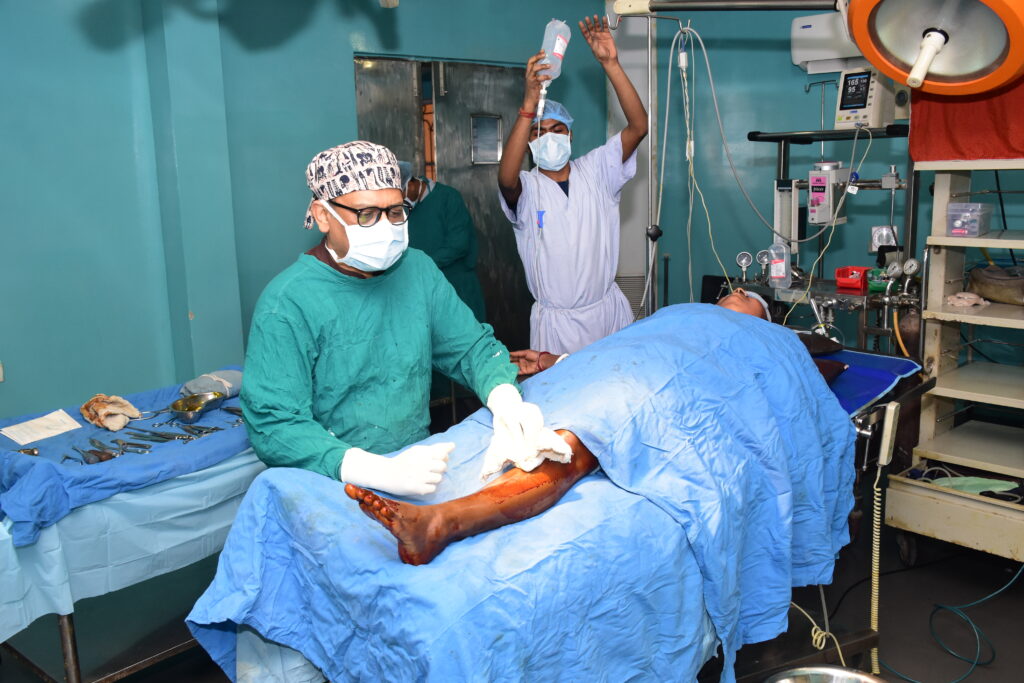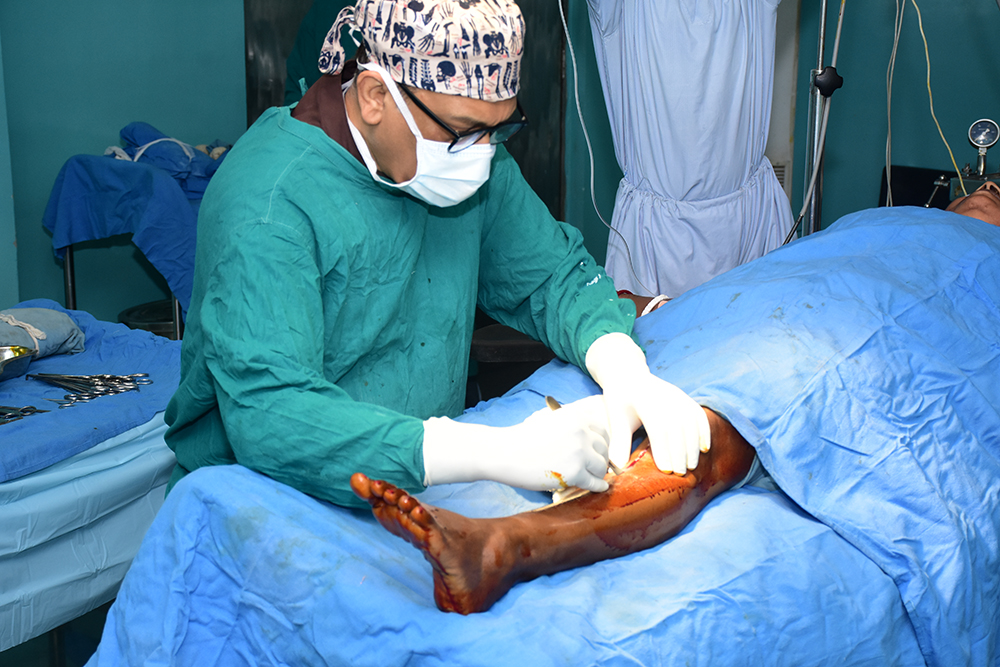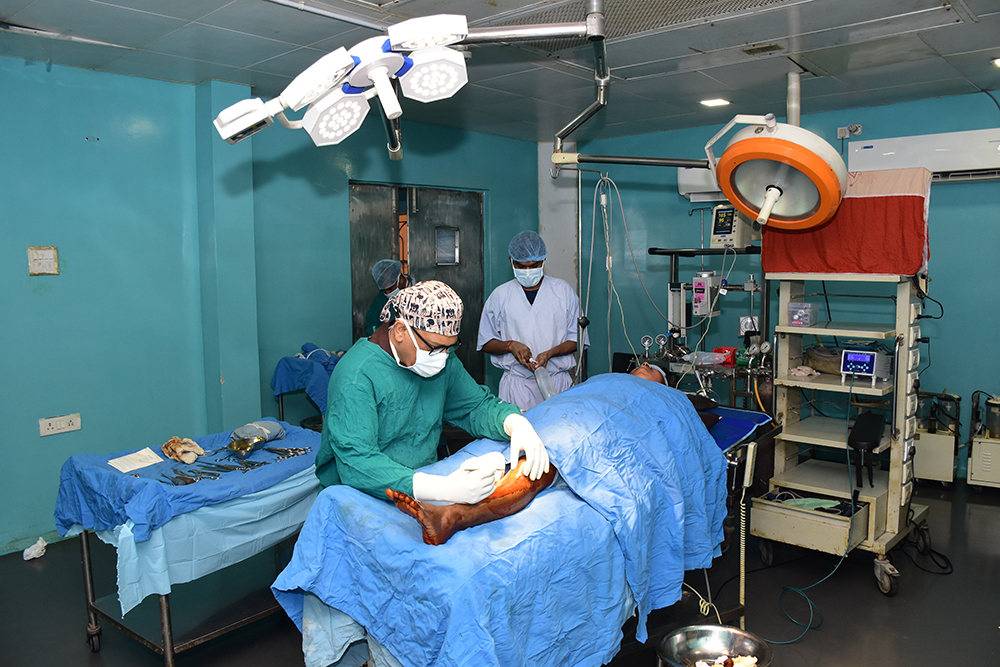Total Knee Replacement

Total Knee Replacement
Total Knee Replacement Surgery, also known as total knee arthroplasty, is a surgical procedure that replaces the damaged or worn-out surfaces of the knee joint with artificial components. This surgery is primarily performed to relieve pain and restore function in individuals with severe knee damage due to osteoarthritis, rheumatoid arthritis, or traumatic injury.
Procedure Overview
Preoperative Preparation:
- Consultation and Evaluation: Patients undergo a thorough medical evaluation to ensure they are suitable candidates for surgery. This includes reviewing medical history, physical examination, and imaging tests like X-rays and MRI.
- Preoperative Instructions: Patients are given specific instructions regarding fasting, medication adjustments, and preparations for post-surgery recovery.
Surgical Steps:
- Anesthesia: The surgery is typically performed under general anesthesia (patient is asleep) or regional anesthesia (numbing the lower body).
- Incision: The surgeon makes an incision over the knee to access the joint.
- Removal of Damaged Tissue: Damaged cartilage and bone are carefully removed from the femur (thigh bone), tibia (shin bone), and patella (kneecap).
- Implant Placement: The removed joint surfaces are replaced with metal and plastic components. The implants are usually cemented in place, though sometimes a combination of cemented and uncemented techniques is used.
- Closure: The incision is closed with sutures or staples, and a sterile bandage is applied.
Postoperative Care:
- Hospital Stay: Patients typically stay in the hospital for a few days to monitor recovery.
- Physical Therapy: Early mobilization and physical therapy are crucial for restoring joint function and strength. Exercises focus on improving range of motion and strengthening the surrounding muscles.
- Pain Management: Medications are provided to manage pain and prevent blood clots.
Benefits of Total Knee Replacement
- Pain Relief: Significant reduction or elimination of knee pain.
- Improved Mobility: Enhanced ability to perform daily activities and improved joint function.
- Better Quality of Life: Increased activity levels and overall quality of life.
Risks and Complications
As with any major surgery, total knee replacement carries potential risks, including:
- Infection
- Blood clots
- Implant loosening or wear
- Nerve or blood vessel injury
- Continued pain or stiffness
Recovery Timeline
- Short-Term Recovery: Initial recovery involves managing pain and swelling, with gradual improvement in mobility. Most patients begin walking with assistance within a day or two after surgery.
- Long-Term Recovery: Full recovery can take several months, with continued improvement in joint function and strength over time. Physical therapy plays a crucial role in ensuring a successful outcome.
Conclusion
Total knee replacement surgery is a highly effective procedure for individuals suffering from severe knee pain and disability due to joint damage. By replacing the damaged joint surfaces with artificial components, patients can achieve significant pain relief, improved mobility, and a better quality of life. Proper preoperative preparation, skilled surgical technique, and diligent postoperative care are essential for a successful outcome



Our associate TPA
Akriti Clinic offers seamless TPA facilities, ensuring hassle-free insurance claim processing. Patients benefit from efficient and streamlined services, making their healthcare experience more convenient.






